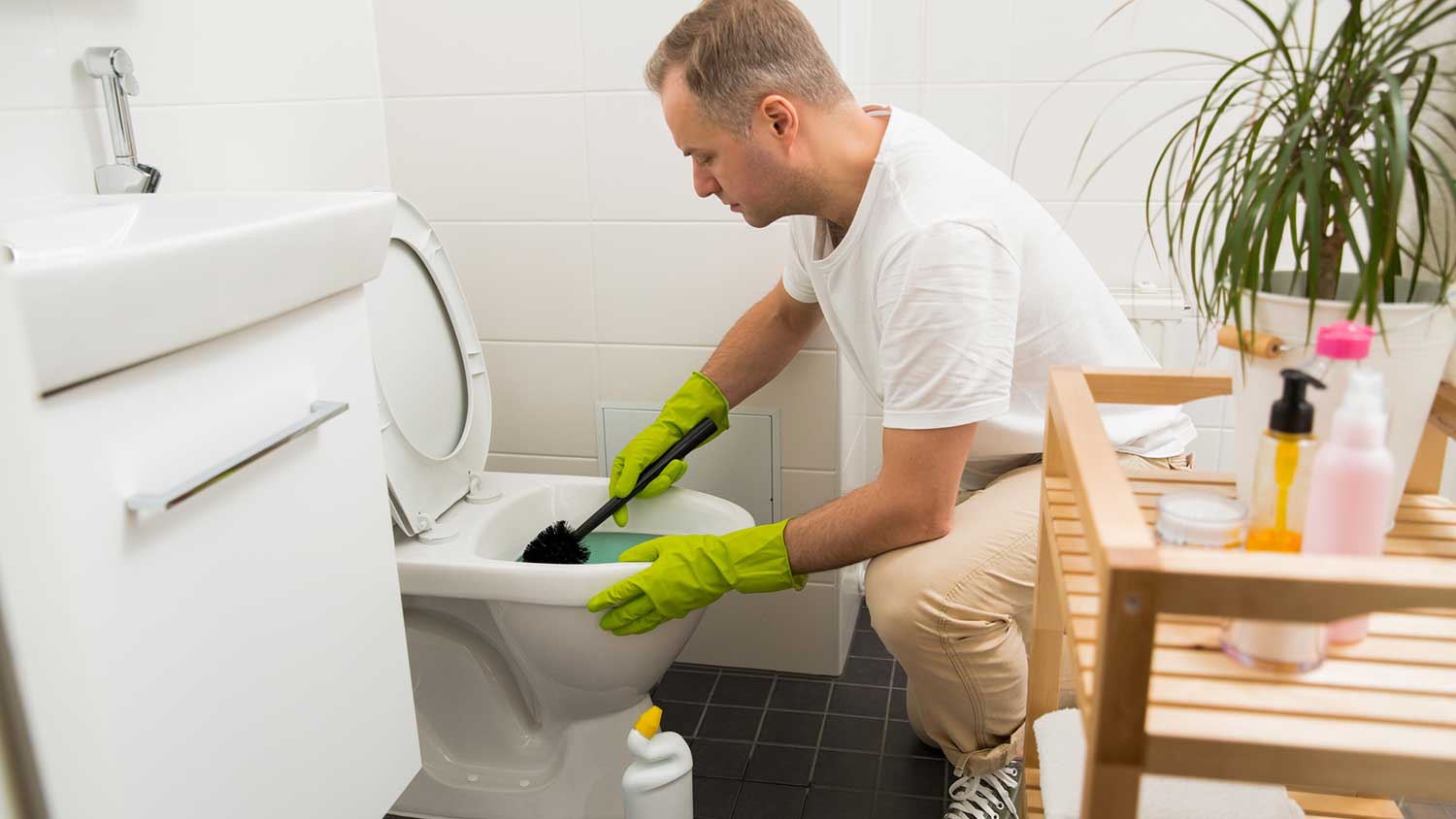Why Is My Shower Curtain Turning Orange? 3 Common Problems and Solutions
Orange you ready for clean shower curtains?


Hard water scum can oxidize and leave an orange residue on your shower curtains.
The slimy orange gunk on shower curtains is likely from bacteria.
Check your products to see if orange dye could be the cause.
Regularly clean your shower curtains to keep orange scum off them.
If you’ve noticed orange on your shower curtains, it may be time to investigate what’s causing the discoloration. Orange shower curtains can be due to several factors, including hard water, bacteria, and products. Read this guide to learn why your shower curtains are turning orange and what you can do about it.
1. Hard Water Residue
If you live in an area prone to hard water, then there's a good chance that the orange stains in your shower curtains are caused by mineral buildup. Minerals like magnesium and iron oxidize when they hit the air and stick to shower curtains, leading to the notorious orange hue.
How to Fix It
To prevent your shower curtains from turning orange from hard water, invest in a water softener. A whole-home water filtration system keeps hard water from causing issues throughout your entire home, but if your main concern is your shower curtain, you can get by with a single-point filter that goes over your showerhead or bathroom faucet and operates on just one of your water outlets. Whole-home water filtration systems cost $2,300 on average.
If you don't want to invest in a water filter, then the best way to prevent oxidized minerals from collecting on your shower curtain is to clean it with vinegar or toss it in the washing machine once a month.
2. Orange Bacteria

No one likes to think that they are soaking away with orange bacteria, but if your shower curtains are orange and slimy, then bacteria called Serratia marcescens could be the reason behind your orange shower curtains. Those sensitive to mold could experience urinary tract infections, skin rashes, and breathing problems from mold exposure, so it’s important to resolve this problem ASAP if you’re experiencing any symptoms after showering or bathing.
How to Fix It
To remove orange bacteria from shower curtains, you can use vinegar or store-bought mold remover. If using vinegar, then spray an equal ratio of water and vinegar onto the shower liner and let it sit for around 15 minutes before scrubbing it clean. Follow the instructions on your store-bought mold-removing solution.
If your shower curtain still has discoloration after cleaning it, you can toss the shower curtain in the washing machine on the delicate setting to try to remove any remaining bacteria and then soak it in bleach to remove the orange. Just be sure to wear PPE, have good ventilation, and avoid mixing bleach and vinegar, as this creates a hazardous gas.
3. Product Dyes
While that colorful, handcrafted soap may look beautiful on the shelf at the store, it might not look so nice in your shower. An orange bar of soap, or other shower products, can turn your shower curtain orange from the dyes in the product—especially if they use natural dyes like turmeric.
How to Fix It
Regularly put your shower curtain in the washing machine on a gentle cycle and air dry to remove soap scum and product buildup. You might also want to switch products if you’re using colorful soaps, shampoos, and conditioners to prevent staining.
When to Call a Pro
Most orange shower curtains don’t require a pro to fix, but if you notice mold issues throughout your bathroom or other parts of your home, then we recommend you contact a local mold testing and remediation company to take a look at your home.
Likewise, orange shower curtains caused by hard water can impact other areas of your life by causing dry skin, brittle hair, stiff clothes, noises in your water heater, or sediment buildup on your dishes. You might want to work with a professional to install a water filtration system.
How to Prevent Your Shower Curtain from Turning Orange
Your shower curtain doesn't have to turn orange on cue every couple of months—not with these tips to prevent your shower curtain from turning orange:
Keep your bathroom ventilated. Run your bathroom exhaust fan and crank open the window to help water evaporate.
Use a shower squeegee. Running a squeegee over the shower walls and bathtub can help remove water and soap residue that feed orange bacteria.
Straighten out the shower curtains. Don't leave them crumpled after a shower, as this can encourage water build-up and prevent evaporation. By pulling your shower curtains all the way across the shower, you can speed up the dry time.
Place the shower curtains over the bathtub. Since the outside of the bathtub is dry, flipping the shower curtains over the edge of the bathtub can aid in the drying process.
Install a water filter. You can install a water filter or water softener in your shower or home to prevent hard water buildup.















